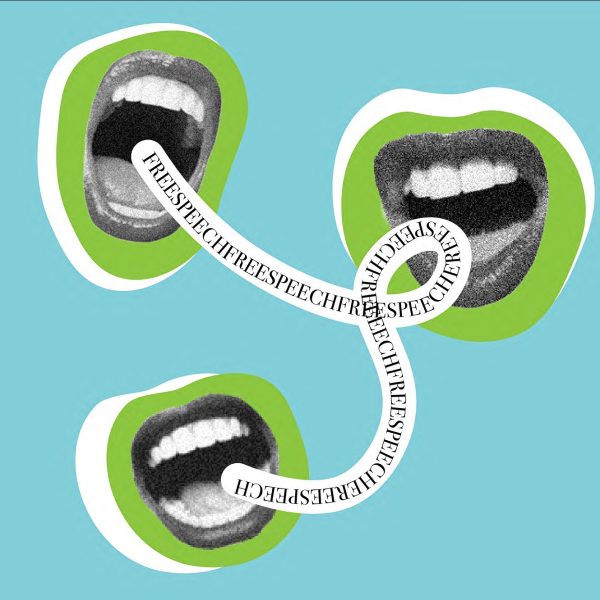Remembering Katrina: Parade provides intimate glimpse of storm’s devastation
August 27, 2015
Neill Aguiluz moved into his dorm in Wall for his freshman year at Tulane on Aug. 25, 2005. Immediately after settling into his new home, he attended convocation and was told by President Scott Cowen to pack up and leave. Two days later, Hurricane Katrina made landfall.
A Louisiana native, Aguiluz grew up in a family accustomed to the processes surrounding tropical storms and hurricanes, and did not expect much from the storm. Aguiluz evacuated to his home in Baton Rouge along with many extended family members from the New Orleans area.
“That morning I didn’t know there was a hurricane coming at all,” Aguiluz said. “I doubted it was going to be anything, we’re from here so we figured we’d leave our stuff here, leave for a couple days and come right back.”
After the flooding receded, his family returned to assess the damage done to his paternal grandparents’ house in St. Bernard Parish near the Ninth Ward. His grandparents arrived to find their home completely destroyed.
“The water was two feet over their roof,” Aguiluz said. “When they went to go look at it and clean it out, it was basically a slab with a bunch of crap on it.”
Aguiluz enrolled in classes at LSU for the fall semester along with many other displaced Tulane students. Aguiluz said it took around three weeks after the storm before any schools disseminated official communications regarding enrolling elsewhere for the semester, which was complicated by the lack of information provided by Tulane.
“I just remember feeling really confused,” Aguiluz said. “It took a while before it was finalized, but then [LSU] had a registration morning where we all piled into a room and sort of took whatever space was available. The whole process was kind of weird. We didn’t really know what was going on at the time.”
Once Tulane had a plan for the spring semester, former Tulane President Scott Cowen visited many universities to host town hall meetings with temporarily displaced Tulane students. Aguiluz attended one of these meetings at LSU with around 40 other students.
“It was a good thing to calm everyone’s nerves,” Aguiluz said. “I think all of us at LSU felt kind of unwelcome so it was nice to be all together and know that we all went to Tulane and that we had an administrator.”
Cowen’s efforts to create a sense of community among displaced Tulane students largely contributed to the unexpectedly high retention of students following the university’s closure.
“That was one of the things that my mom liked most about Tulane; she [said] ‘Oh, you can go to Tulane now, the president is amazing; I love him,'” Aguiluz said.
When he returned to Tulane for the spring semester, Aguiluz noticed few signs of wreckage on campus other than dead grass and damaged oak trees.
“Campus in general was pretty put together,” Aguiluz said. “It was once you got off campus in any direction for five minutes when you started to see things missing and houses with windows gone and piles of trash everywhere. By the time all the students got back, most people who were coming back had already gotten into their houses and started to clean out all the crap.”
Aguiluz marched in the Tulane University Marching Band in the spring semester. The band debuted during the Krewe of Alla Mardi Gras parade in the West Bank.
“[The parade] ended up being probably the most surreal experience,” Aguiluz said. “[The Krewe of Alla] decided to keep its original route, I guess as kind of a defiance to Katrina. The West Bank had a lot of empty lots, so we did this whole long parade route. There weren’t many of us, and we’d go three or four blocks without seeing anybody. That was really when I had the realization like ‘Wow, this is strange.'”
The emotional aftermath of Hurricane Katrina affected many of Aguiluz’s peers in the marching band and beyond, and inspired a call to action for many.
“I remember any time a picture or memorial would pop up on the news, anyone in the band would just start tearing up,” Aguiluz said. “You would just need a moment. On campus, everybody really felt like they needed to go out and do things so there were a lot of people going out and doing service.”
Aguiluz noticed a change in the spirit of Tulanians after the storm.
“I think that in the past, in the classes above mine, [students] liked New Orleans and felt like it was a cool place to hang out, but they didn’t necessarily feel all that connected to it,” Aguiluz said. “For better or worse Katrina kind of changed that and people felt a little bit more personal responsibility. There is definitely more of a need to connect with the city and kind of give back, not just on a service level but on a living here and supporting the city level.”
Aguiluz graduated from Tulane in May of 2009 with a degree in cell and molecular biology. He now serves as an undergraduate admissions counselor at the university.



















Leave a Comment